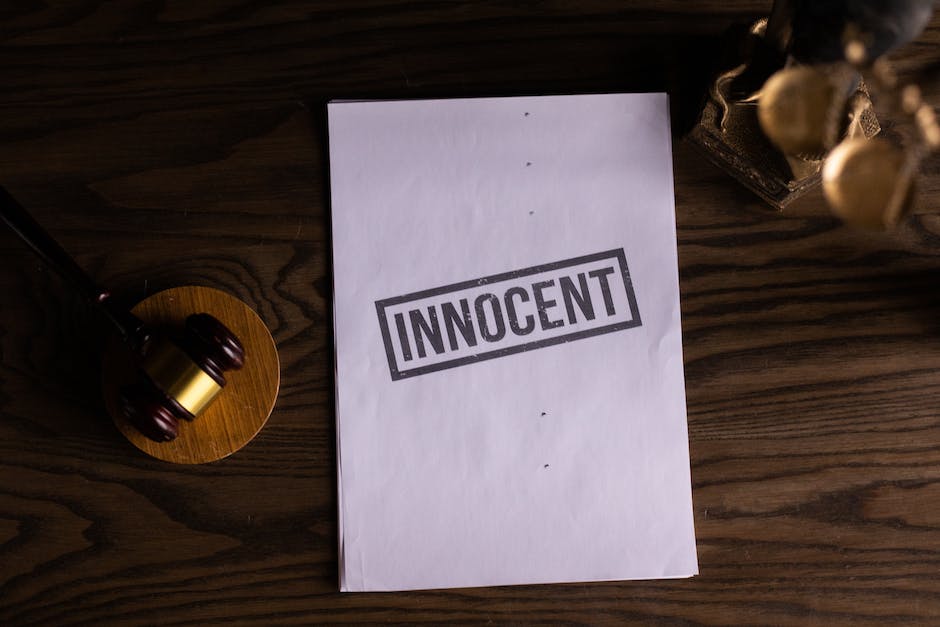Navigating the intricate world of property management can be a daunting task, particularly when dealing with the unique land use regulations and laws in the state of Maryland. As someone aspiring to succeed in this realm, a sound understanding of the Maryland specific property regulations, tenant and property rights, and zoning laws becomes imperative. Additionally, knowledge of effective property management strategies, such as tenant relations, attending to maintenance needs, addressing emergency situations, is critical for streamlined operations. Getting acquainted with different types of lease agreements and contract handling, coupled with an analysis of the current Maryland real estate market, can significantly enhance your decision-making skills during the property changeover process.
Understanding Maryland Property Laws
Understanding Maryland Property Laws and Regulations
Each U.S state has specific property laws and regulations, and Maryland is no different. For property management, it is essential to research these laws, paying particular attention to tenant rights, property rights, and zoning laws. The Maryland Attorney General’s Office can be a key resource for specific details on these regulations.
Exploring Tenant Rights
In Maryland, tenant rights are codified under the Real Property Section of the Maryland Annotated Code. This code covers aspects such as security deposits, eviction processes, and rent increases. The state also provides a detailed landlord-tenant handbook that breaks down these rights and responsibilities. Review this to understand specifics, such as timelines for property inspections and maintenance responsibilities.
Understanding Property Rights
As a property manager, it’s critical to understand specific property rights. This includes the right to possess, control, exclude, enjoy, and dispose of the property. These rights are primarily highlighted in the Maryland Code, Real Property Section. Understanding these rights can help manage your properties effectively and avoid potential conflicts.
Zoning Laws in Maryland
Zoning regulations have a strong influence on property management. These laws, established by localities within Maryland, determine how a property can be used. Thus, a comprehensive understanding of your area’s zoning laws is vital. These are usually accessible through the local county or city government websites. For more detailed insight, consider contacting a local real estate attorney or getting involved with a local planning commission meeting.
Stay Updated
Keep in mind that property laws and regulations can change, and it’s your responsibility to stay updated. Regularly visit government websites, or consider signing up for updates when new laws that affect property management are enacted. You can also join a local landlord or property management association to keep abreast of new developments.
Seeking Legal Consultation
Navigating property laws can be complex. When in doubt, seek advice from legal professionals, preferably those with expertise in real estate law. They can provide guidance and updates on changes to laws and regulations pertaining to property management in Maryland.
Although understanding these laws may seem daunting at first, it ultimately proves crucial in managing a property successfully. By following these steps, you’ll be well-equipped to execute a successful property management changeover in Maryland.

Hands-on Property Management Strategies
Understanding Different Property Management Strategies
There are different strategies you can adopt when managing a property in Maryland. You might consider the hands-on approach, which involves directly overseeing all aspects of your property. This means dealing with tenants, handling maintenance tasks, and sorting out emergencies yourself.
On the other hand, you might prefer the passive approach, which entails hiring a property management company to take care of everything on your behalf. You could also opt for a hybrid approach, which is a combination of the two, depending on your unique needs and circumstances.
Hand-On Management
The hands-on or direct management approach can be time-consuming but potentially rewarding. It lets you maintain a close relationship with your tenants and a keen understanding of your property’s condition. Regular inspections are key to this strategy, as they allow for prompt detection and repair of any maintenance issues.
A downside to this approach is that it may require in-depth knowledge of local laws and regulations regarding property management. Therefore, it’s advisable to familiarize yourself with relevant Maryland property laws and landlord-tenant rights to ensure smooth operation.
Hiring a Property Management Company
If you don’t have much time or prefer not to involve yourself directly in the management of your property, hiring a property management company might be a good option. These professionals take care of tasks such as tenant screening, rent collection, property inspection, dealing with tenant complaints, and the organization of maintenance and repairs.
Before hiring a company, research and compare different offerings. Some companies charge a percentage of the collected rent, while others have a flat fee. Ensure you know of any other extra fees you may be liable for, such as lease renewal fees and maintenance costs.
Handling Tenants
A crucial part of effective property management involves dealing with tenants appropriately. Good tenant relations can lead to decreased turnover and fewer vacancies, ultimately saving you time and money. Make sure to screen your tenants thoroughly to prevent issues down the line. Try to always maintain a professional relationship, ensuring their rights are respected, and dealing with complaints promptly.
Property Maintenance and Repairs
Maintenance is a key aspect of property management. Regular inspections and preventive maintenance can help you spot potential problems before they become serious and expensive. Create and maintain a reliable network of contractors and service providers to ensure timely and high-quality repairs. Remember to follow Maryland’s laws providing tenants with a property that meets basic livability standards.
Dealing with Emergencies
As a property manager, you should be prepared for emergencies. This could include fire, flooding, criminal activity, dangerous damage to the property, power failures, or health crises affecting tenants. Make sure you have a plan in place, including a list of emergency contacts such as fire and police departments, utility companies, and emergency repair services.
Being prepared to respond quickly and appropriately can help avoid additional damage and show your tenants that their safety and well-being are important to you.

Lease Agreements and Contracts
Understanding Lease Agreements
When managing a property in Maryland, the first type of document you’ll handle is the lease agreement. This document stipulates the terms and conditions of the tenant’s stay, detailing the rent amount, payment schedule, security deposit details, and tenant’s responsibilities. There are various types of leases such as Fixed-Term Lease, a Periodic Lease, and a Lease with Option to Purchase. Each has its own set of rules and regulations which you should research and understand thoroughly.
- A Fixed-Term Lease is for a pre-determined period, often one year, and is common for residential leases.
- The Periodic Lease is a rental agreement that continues until either the landlord or tenant ends it, typically on a month-to-month basis.
- The Lease with Option to Purchase gives the tenant the opportunity to purchase the property at a pre-determined price during the lease term.
Contract Management
The second type of document you’ll handle as a property manager is the property management contract. This contract establishes the relationship between you and the property owner, outlining duties, payment details, and contract termination conditions. For instance, the contract may specify that the manager is responsible for rent collection, dealing with tenant issues, maintenance coordination, and providing financial statements to the owner.
Dispute Resolution
When disputes or issues arise, perhaps a disagreement between a landlord and tenant, it’s your role as a property manager to mediate and find a resolution. Issues might range from late rent payments, to maintenance disputes, to eviction proceedings. You should familiarize yourself with Maryland’s landlord-tenant laws to handle these disputes. For example, landlords in Maryland are required to provide safe and habitable housing, and tenants must pay rent and not damage the property.
When a dispute escalates, it may need to be resolved in court. In such cases, providing clear documentation of conversations and actions is useful in proving your case. Every phone call made, letter sent, payment received, or maintenance issue reported should be documented thoroughly.
To avoid disputes, it’s crucial to maintain clear communication between all parties. Regularly updating tenants and landlords on the property’s conditions and any changes in rules or regulations helps prevent misunderstandings.
Training and Resources
Given these responsibilities, professional training or certification in property management can be beneficial. Organizations like the National Association of Residential Property Managers provide resources, training, and certification programs. Online resources, local real estate associations, and property management seminars can also be helpful in learning about these tasks.
Reviewing and understanding Maryland’s state and local property management laws is an essential part of your role as well. This helps ensure that you’re fulfilling all duties and avoiding any potential legal issues.

Real Estate Market Analysis
Understand the Maryland Real Estate Market
First and foremost, familiarize yourself with the current real estate market trends in Maryland. This involves an intensive study of local pricing, knowing what type of properties are in high demand, and being cognizant of buyer preferences. Knowing the market inside-out will act as a guiding map in making more informed decisions during the property management changeover process.
Research on Local Trends
Although the larger Maryland real estate market may be performing well, there could be significant differences at the local level. Therefore, it is pivotal to conduct thorough research on local market trends. Inquire about the rate at which properties are selling in your area. Are there specific types of properties that are more attractive than others? Regularly reviewing local market reports and speaking with local realtor professionals can provide invaluable insights into these trends.
Identify Current Property Prices
Closely monitoring property prices in Maryland plays a crucial role in understanding the market. Conduct research on the prices of similar properties in your area and compare them with your properties. This will help you determine whether your properties are priced appropriately or need adjustment. Make use of real estate websites, apps, or local real estate agents to gather accurate pricing data. Keep in mind, overpricing could put potential clients off, while underpricing may make you lose money.
Evaluate Market Demand
Recognizing what’s in demand in the Maryland market can enable you to stay ahead and offer properties that align with buyer and renter preferences. For example, if energy-efficient homes are trending, you may consider implementing sustainable features. If single-family homes are selling more compared to apartments, your long-term investment strategy may need reevaluation.
Stay Updated on Legal and Regulatory Changes
The real estate environment in Maryland is governed by a set of laws and regulations. These can change over time to reflect the changing real estate landscape. Ensure you stay updated on these changes as they will affect your property management operations.
Leverage Market Analysis Tools
It might be beneficial to leverage real estate market analysis tools to track market trends, comparable sales and rental rates. These tools will provide indicators about market performance and property valuation which in turn influence how you manage your properties.
Tap into Realtor Networks
Forming professional relationships with local realtors can offer beneficial insights into the market. They are often the first to know about new developments, changes in demand and, pricing trends which could affect your property management strategies.
Remember, understanding your real estate market thoroughly will equip you with the knowledge needed to effectively handle the property management changeover process in Maryland.

Photo by eslamtawakol on Unsplash
Developing a solid foundational understanding of Maryland’s property laws, effective property management strategies, various lease agreements and contracts, and getting a pulse on the current state of the local real estate market is crucial when navigating the property changeover process. With this knowledge at your fingertips, not only will you be better equipped to tackle the challenges and opportunities that come your way, but you’ll be able to make more informed decisions that could lead to better outcomes for your property management endeavors. Thus, being well-informed and prepared turns you into a proficient and successful property manager in the state of Maryland.
